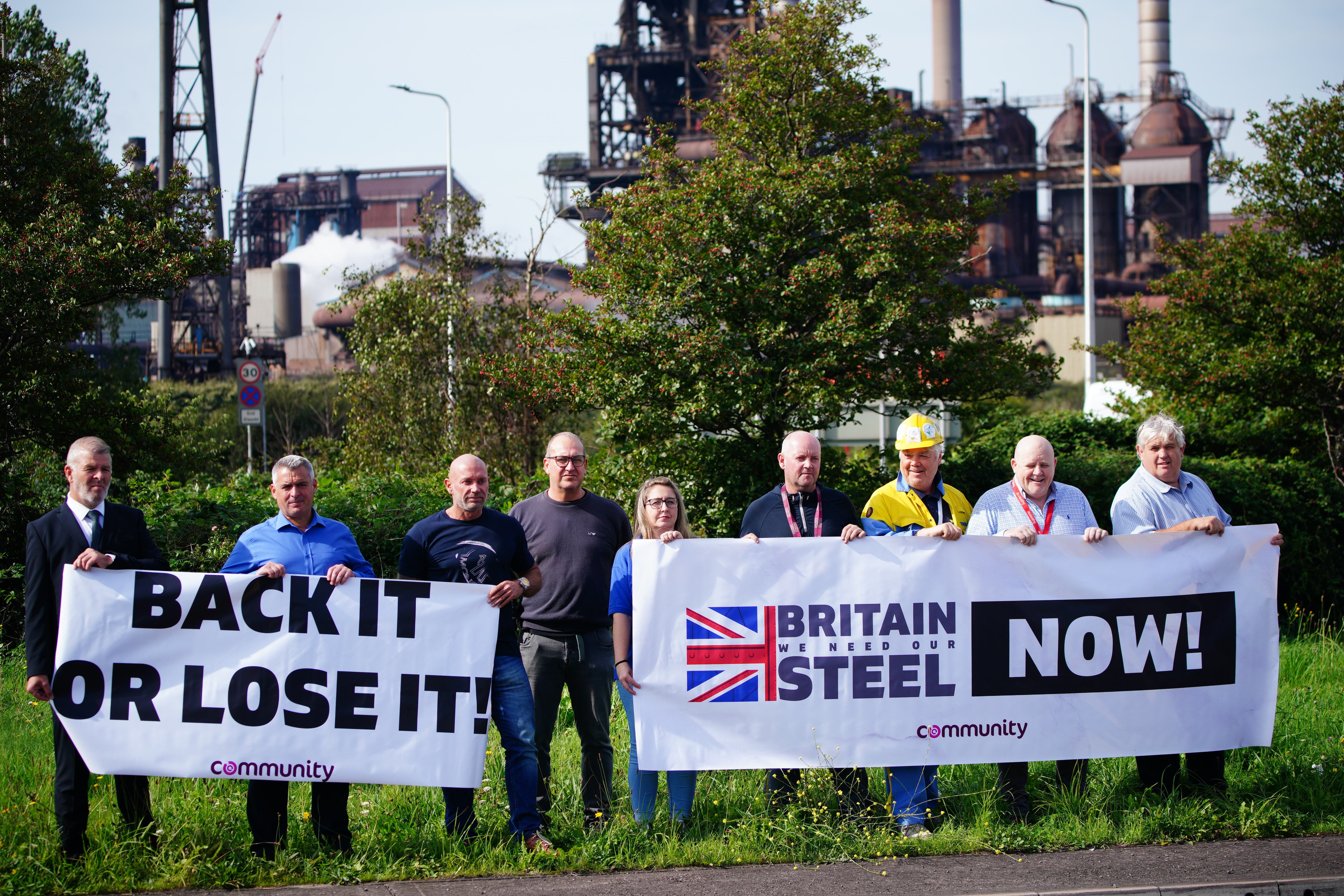After Port Talbot, is there any hope for British steel?
With the loss of 2,500 jobs at the South Wales steelworks, despite a £500m government green grant, James Moore unpicks what’s become of a once-thriving industry


The government has announced a “new improved” arrangement with Tata, the conglomerate that owns the Port Talbot steelworks, confirming a £500m grant which will go towards building a greener electric arc furnace. Tata will kick in more than £1bn – but it comes at the expense of some 2,500 jobs.
It has been loudly trumpeted by the business secretary Jonathan Reynolds as positive; an improvement over what the previous government put together – but it still comes at a huge human cost.
Port Talbot is a steel town. Wedged between the hills and the sea (with the M4 basically running through it) the plant can be seen “from just about any point”, says Tom Hoyles, the GMB’s organiser in Wales. For me, his description of the area has echoes of Stocksbridge in Sheffield where I was born.
You couldn’t see the steelworks from the council estate where we lived at the top of a horribly steep hill. But you could from my grandparents’ place, nearer the centre of the town. And Stocksbridge has suffered from the industry’s woes, too; has had its own painful redundancy programmes to deal with. It also made headlines for the funicular railway, planned as part of its grant from the previous government’s “towns” fund. The latter, now dropped, was a poster child for the failed execution of “levelling up”.
The new government needs to do better. It needs to do something. The GMB and Community – unions which are represented at Port Talbot – have said the new deal is better than what went before but is still “not something to celebrate”. They had put forward a plan which would have kept one of the blast furnaces open until past 2030.
The closure will turn Britain into a steel recycler rather than a steelmaker. A move described by Plaid Cymru as a ‘historic blunder’
Yes, the arc furnace is much greener – it will help the government meet climate change targets. But it won’t be able to make new “virgin” steel from the raw materials (iron ore and coal), turning Britain into a steel recycler rather than a steelmaker. This has been described by Plaid Cymru as a “historic blunder”.
The new furnace will also be significantly less labour intensive, hence the job losses: some 2,500 of which are confirmed with 300 more looming in the future.
The government says it has secured improved terms for those in the firing line, so there’s that. But here’s the thing: when you shut down a blast furnace, it can never be started up again. And when you lose well-paying jobs that go with such a furnace – Unite, also represented at the plant, says salaries of £35-£38k are typical in a part of the world where that goes a long way – you will (probably) never replace them either. Alternative options locally are limited. There is the public sector, poorly paying parts of the service sector. Retail, for example. And not a lot else.
There are plans to run in a hydrogen pipeline, so new industries could move in to take advantage. As for hopes of making it a centre for Ed Milliband’s giant floating offshore wind turbines? We’ll see.
The impact on the town in the meantime is going to be devastating. It isn’t just the jobs at the plant that will be affected. There is the supply chain and any number of other businesses that are supported by those jobs: pubs; shops and more besides. There will inevitably be closures, bankruptcies and more job losses coming.
While some of the older workers at the plant may be happy to take packages, the younger ones face an uncertain future. They are being offered training. Hoyles, the GMB’s organiser on the ground, says there may be opportunities for them on the HS2 project or even at the nuclear plant being built at Hinkley Point in Somerset. Their skills would come in useful at both.
But these are many miles away from the town and Port Talbot has always been a community where people live and work close to home, rather than commuting over long distances. They pick up their children from school at the end of the day, meet up at the local rugby club. The community is going to be grappling with the changes for years to come.
“Historically, the problem has been that they’ll assemble the things using cheap, non-unionised labour overseas,” says Hoyles of the wind power plans. “There needs to be a change in the way they look at contracts so it’s not so much the best value for money but what will deliver the most to the local community. If we’re going to become a green superpower, we need to actually build things here.”
Even when the arc furnace comes online, there remain problems to be solved. “To ensure that their significant investment yields returns for our nation, government must now also deliver the right business environment. Steel businesses need competitive electricity prices, access to good quality steel scrap, and fair competition from international trade,” says UK Steel director general Gareth Stace.
Energy prices are a particular problem. UK Steel analysis, released this September, found that UK steel producers already pay up to 50 per cent more than competitors in France and Germany, adding £37m to the sector’s costs. That new, greener arc furnace is expected to double the plant’s electricity use.
Hoyles says while people had long expected the events which are playing out, the job losses have still come as a bitter blow. The mood of the town is down and fearful. Is it any wonder?






Join our commenting forum
Join thought-provoking conversations, follow other Independent readers and see their replies
Comments